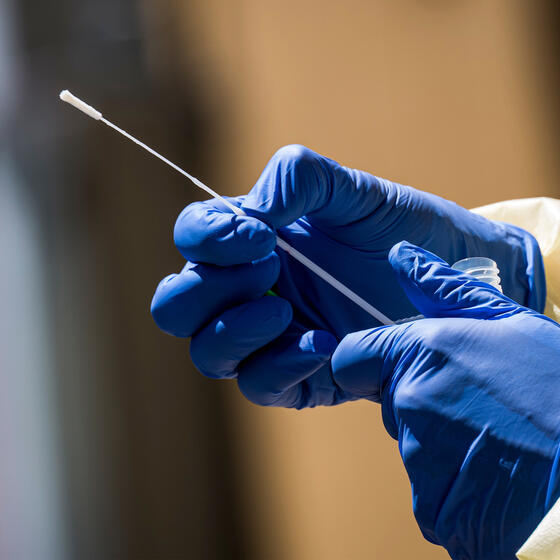Study: Controlling COVID-19 Outbreaks in Residential Colleges Requires Frequent Testing
University administrators are spending their summers planning for how to hold classes safely in the fall. A new study co-authored by Yale SOM’s Edward Kaplan seeks to aid such decision making by using a computer model to estimate the likely effects of different approaches to testing and isolating infected students in a residential college setting. It finds that weekly testing will keep outbreaks under control under relatively optimistic scenarios, but that testing every three days would be more reliable.

David Paul Morris/Bloomberg via Getty Images
By Ben Mattison
A Yale study co-authored by Edward H. Kaplan, the William N. and Marie A. Beach Professor of Operations Research, professor of public health, and professor of engineering, uses a computer model to simulate transmission of COVID-19 in a residential college and concludes that under the most likely scenarios, weekly tests will not be sufficient to contain an outbreak.
The paper, a collaboration with Joseph T. Chang of the Yale Department of Statistics and Data Science and Forrest W. Crawford of the Yale School of Public Health, is awaiting peer review.
The researchers’ model allows for the adjustment of many different inputs, including the rate of transmission, the size of the student body, the length of the semester, the number of initial infections, the number of infections “imported” from off campus, the frequency of testing of students, and the speed and accuracy of test results. Based on the selections made, the model, which is accessible to the public online, calculates the number of expected infections over the course of the semester.
For the purpose of comparing testing regimens, the researchers simulated a student body of 10,000 and an abbreviated 80-day semester, which begins with three students already infected and one infection imported from outside the campus each day. They also set a goal of keeping the infection rate under 5% of the student body. They found that weekly testing of students would only keep an outbreak below 5% under the most favorable assumptions about transmission rates and other variables. Testing every three days, on the other hand, would mean that an outbreak could be controlled under more pessimistic scenarios.
“Such improved performance comes at the expense of isolating many more students over the semester,” the authors note, “in addition to the cost of the increased number of tests required.”
The authors warn that such performance is dependent on rapid test turnaround and effective isolation of students. They also write that college administrators should be prepared to change course depending on conditions:
“This analysis suggests that administrators must proceed cautiously and with open eyes when designing residential college screening programs, for while repeat testing for SARS-CoV-2 infection can be a powerful tool for preventing infections and preserving public health in the residential college setting, it is not guaranteed to succeed.”